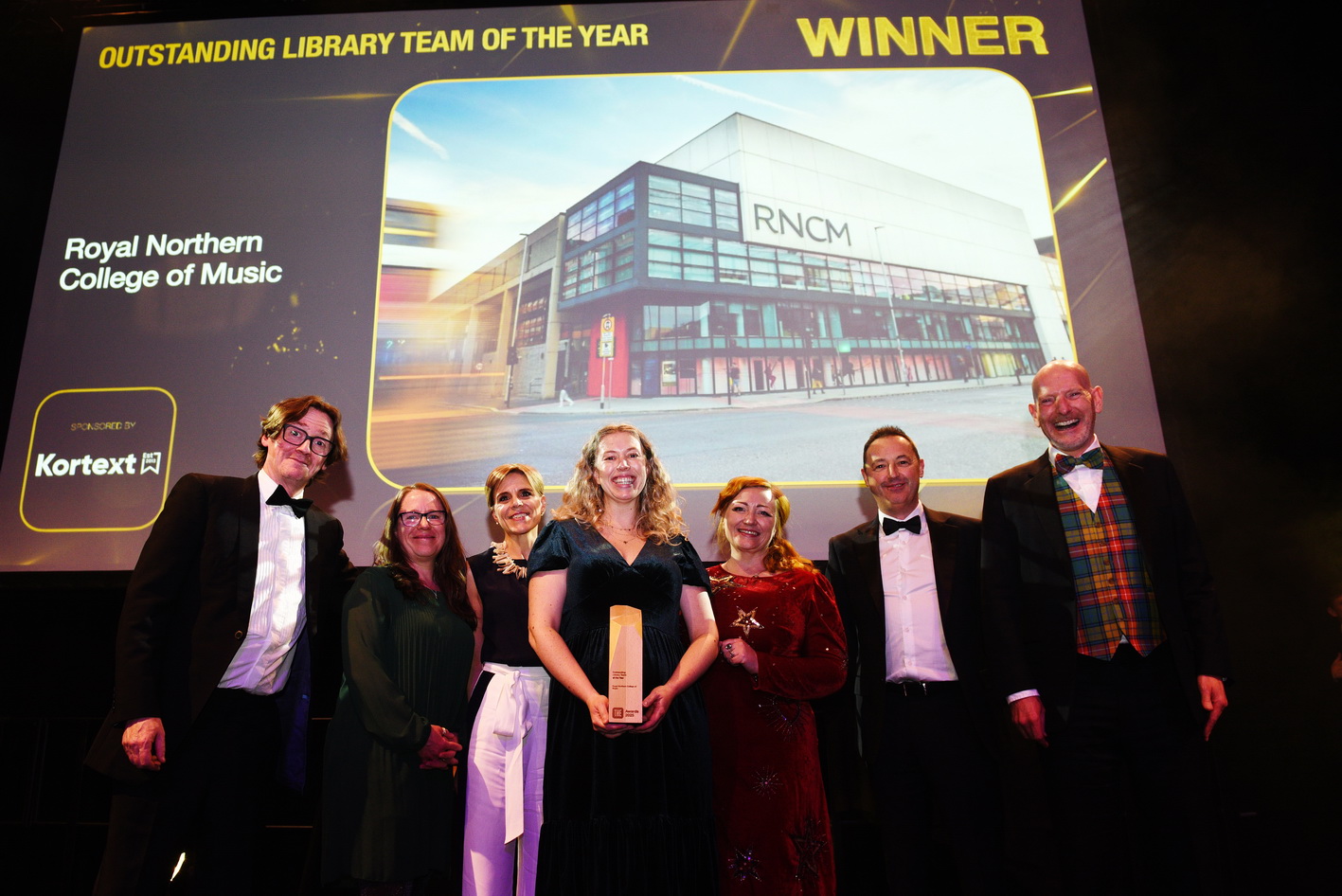The following is a guest post from Sarah d’Ardenne, Head of Library Services, Royal Northern College of Music:
On Thursday 13 November, I and some of my colleagues took a trip up to a rather soggy Edinburgh to attend the Times Higher Education (THE) Awards ceremony 2025. The Royal Northern College of Music Library had been shortlisted for the “Outstanding Library Team of the Year” award, retrospectively for 2023/24 academic year. The Library team was thrilled to have been shortlisted, alongside some other very impressive submissions, but we were absolutely delighted to come away as winners! Often referred to as “the Oscars of Higher Education”, winning the THE Award feels like recognition for the exceptional work my fabulous library colleagues provide, day in, day out, for RNCM staff and students.

Our submission highlighted the personalised, one-to-one support we offer our students throughout their time at the RNCM; equipping them with the tools and knowledge they need to thrive in the professional music world. At the heart of this is our team of subject specialist staff, whose in-depth knowledge of areas such as copyright enable us to help students navigate complex issues with ease.
Working collaboratively with other departments, such as with our Health and Wellbeing Hub to deliver bespoke support to students with personal learning plans, has created a seamless support network for students, with the added benefit of the Library team being more aware of what’s happening elsewhere in the college. We’ve also worked directly with the Students’ Union to host joint events, making the Library a welcoming, accessible space for all, and an essential part of the RNCM community.
The personalised support continues in the development of our collections, with over 70% of purchases in 2023/24 coming from direct user requests. This responsive approach, alongside aligning the collection with the college’s programme of events and academic priorities, ensures every student has access to the resources they need, and keeps the collection relevant and inspiring.
The judges of the Times Higher Education Awards summed up our ethos perfectly:
“The RNCM library team’s approach, enabling student learning and research, is truly remarkable. Its collaborative work with academic departments and student services means students develop a genuine sense of belonging. RNCM has demonstrated the significance of embedding a student-centred, collaborative approach to library services, resources and support in the delivery of an exceptional student experience.”

For us, this award is more than a trophy – it’s testimony to the dedication of a small but mighty team committed to delivering an exceptional, deeply personalised, specialist music service. Our friendly, student-centred approach opens the doors to learning resources, providing bespoke and adaptive support throughout a student’s time at the RNCM, from offer to graduation and beyond.

Read more about the award in our Campus article here.
